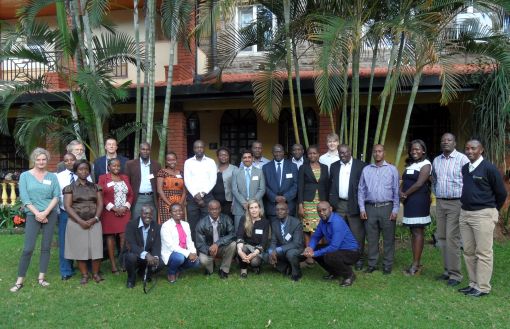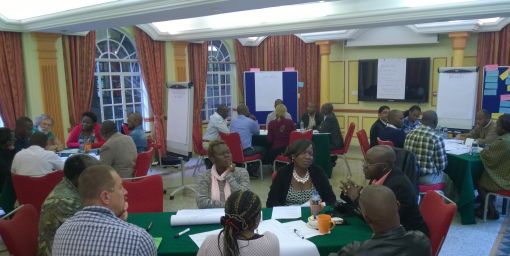Agenda topics at the most recent alumni reintegration workshop in Nairobi included first experiences with career and professional life, employer requirements and ways in which university degree programmes can help facilitate the reintegration process. This time employers also took part in the workshop to contribute their perspective on the matter.
When students in the Development-Related Postgraduate degree programmes return to their home countries, they have professional experience, a recognized university degree and international experience. Still, getting re-integrated back into professional life in their home countries is not always easy. Even if alumni seem to fulfil all the requirements for a desirable job, it can be hard to know where to start or what is actually expected of them. “The workshop in Nairobi clearly demonstrated the large discrepancy between the expectations of alumni and employers,” explains network coordinator Robin Pass, who organised the workshop. “This is why employers and alumni need to network and engage in dialogue with each other.” After experiencing academic and professional life in Germany, alumni often return home expecting to work in modern offices and to take on a certain level of responsibility in their new job. The employers, on the other hand, expect alumni to first prove themselves and to contribute their new competencies and knowledge in a way that benefits the business or organization.
More information wanted
The workshop took another step towards closing the gap between expectations and reality. First, employers and alumni met separately to speak “internally” about their past experiences. Despite different academic backgrounds and wide-ranging career goals, alumni all agreed on one point in particular – that they had not been sufficiently prepared for the return to their home country and home job market.
“This is not a good situation. In the workshop I learned that some alumni received almost no information when starting their new jobs,” reports Jane Ninsiima, a graduate of Nürtingen-Geislingen University, who today works for the Deutsche Gesellschaft für Internationale Zusammenarbeit (GIZ) in her home country Uganda. Employers, too, spoke about a lack of communication and information. “Often, alumni have not learned to clearly communicate their skills,” explains Robin Pass. “Both alumni and employers have a lot to learn, especially in the area of soft skills – anticipating, communicating and moderating.”

Plan ahead for the time after graduation – that’s the participants’ advice for current students © AGEP
Formulating next steps
The workshop participants not only identified the problem areas, but also developed approaches to solving the problems. One of the more important recommendations is that students should take time early in the process to think about and plan the time after graduation. “The universities, too, should make a contribution to successful reintegration,” says Henry Lubinda, from Zambia, who studied Agricultural Economics in Stuttgart and works at the UN Economic Commission for Africa. Participants worked together to define additional measures, such as building and strengthening networks between alumni associations and employer associations. They also collaborated on a list of tips and useful information to help ease the return back home for future students.
Students and alumni can look forward to a special event in early July: a webinar hosted by the Alumniportal Deutschland on the topic of “Reintegration into domestic job markets”.
Go here to access the report on the first reintegration workshop
Coming soon to Millennium Express:
Millennium Express also spoke with the employers who attended the Nairobi workshop. The video interviews will soon be available here!






